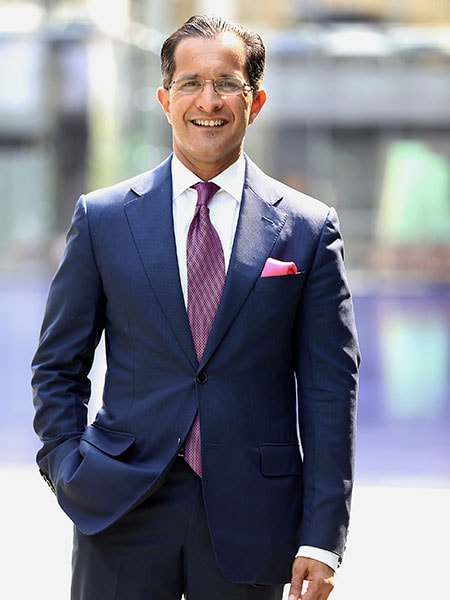'We don't want to diminish the guest experience': Vikram Oberoi
Vikram Oberoi, MD and CEO, The Oberoi Group, on creating the same warmth from behind a face mask, and their new sanitation guidelines in a post-Covid-19 world


 Vikram OberoiOn May 22, The Oberoi Group released a comprehensive set of guidelines that it will follow to ensure hygiene and sanitation, down to practices for the heart of house, swimming pool, laundry facility and doctor’s room. These are available for guests—and other hotels—to peruse should they need to. Vikram Oberoi, MD and CEO of the group, says this is the time for transparency. Edited excerpts from an interview:
Vikram OberoiOn May 22, The Oberoi Group released a comprehensive set of guidelines that it will follow to ensure hygiene and sanitation, down to practices for the heart of house, swimming pool, laundry facility and doctor’s room. These are available for guests—and other hotels—to peruse should they need to. Vikram Oberoi, MD and CEO of the group, says this is the time for transparency. Edited excerpts from an interview:
Q. What was the idea behind making the guidelines available publicly?
Primarily, it is to show our guests the immense thought we have put into it putting a summary together doesn’t paint a whole picture. The second reason is that this may be of interest to other hotels—and I’m not talking of big chains, because they most certainly have also done something similar. But for anybody who wants to see it, use it, we have been very specific to include even the kinds of cleaning agents we use, so there’s complete transparency and understanding.
Q. Do you expect guests to use facilities like the swimming pool in the early days after the lockdown ends?
Swimming pools contain chlorine, which is a disinfectant. So, pools are not dangerous, but we need to make sure they are not crowded. We never allow outside membership at any of our hotels, so it’s not an issue for us to maintain social distancing in the pool.
Q. What will hospitality be like in a ‘contactless’ world?
We don’t in any way want to diminish the guest experience. I may be the friendliest, nicest person, but the way I communicate that is with my smile. How do we create that same warmth from behind a face mask? We’ve addressed that part by focusing on using body language to let our guests feel like they are taken care of.
Q. What kind of messaging will we need to assure people when they can travel again?
We are here to live with Covid-19 for the foreseeable future. But factual information can empower people. If you look at recent statistics from New York—a good yardstick for big cities anywhere—three people with no underlying conditions have passed away from coronavirus from ages 0-17 17 from 18-44 and 72 from 45-64.
Each of these people is important, of course. But a really disturbing figure is that 2.9 million children under the age of five have died this year across the world, from ailments like malnutrition. Four million people die from smoking-related illnesses annually. The other tragedy in our country is that so many people depend on daily wages their children are going hungry. In my mind, we need to figure out ways for these people to go out and earn a living, put food on the table. If we don’t find ways to do so, the human suffering of that will be immense.
First Published: Jun 05, 2020, 11:31
Subscribe Now